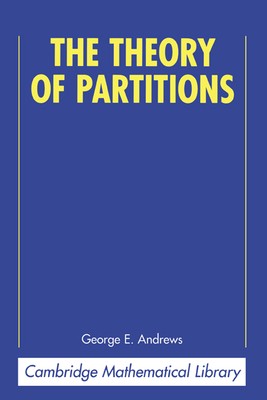
- We will send in 10–14 business days.
- Author: George E Andrews
- Publisher: Cambridge University Press
- ISBN-10: 052163766X
- ISBN-13: 9780521637664
- Format: 15.2 x 23.1 x 1.8 cm, softcover
- Language: English
- SAVE -10% with code: EXTRA
Reviews
Description
This book develops the theory of partitions. Simply put, the partitions of a number are the ways of writing that number as sums of positive integers. For example, the five partitions of 4 are 4, 3+1, 2+2, 2+1+1, and 1+1+1+1. Surprisingly, such a simple matter requires some deep mathematics for its study. This book considers the many theoretical aspects of this subject, which have in turn recently found applications to statistical mechanics, computer science and other branches of mathematics. With minimal prerequisites, this book is suitable for students as well as researchers in combinatorics, analysis, and number theory.
EXTRA 10 % discount with code: EXTRA
The promotion ends in 19d.23:45:54
The discount code is valid when purchasing from 10 €. Discounts do not stack.
- Author: George E Andrews
- Publisher: Cambridge University Press
- ISBN-10: 052163766X
- ISBN-13: 9780521637664
- Format: 15.2 x 23.1 x 1.8 cm, softcover
- Language: English English
This book develops the theory of partitions. Simply put, the partitions of a number are the ways of writing that number as sums of positive integers. For example, the five partitions of 4 are 4, 3+1, 2+2, 2+1+1, and 1+1+1+1. Surprisingly, such a simple matter requires some deep mathematics for its study. This book considers the many theoretical aspects of this subject, which have in turn recently found applications to statistical mechanics, computer science and other branches of mathematics. With minimal prerequisites, this book is suitable for students as well as researchers in combinatorics, analysis, and number theory.


Reviews